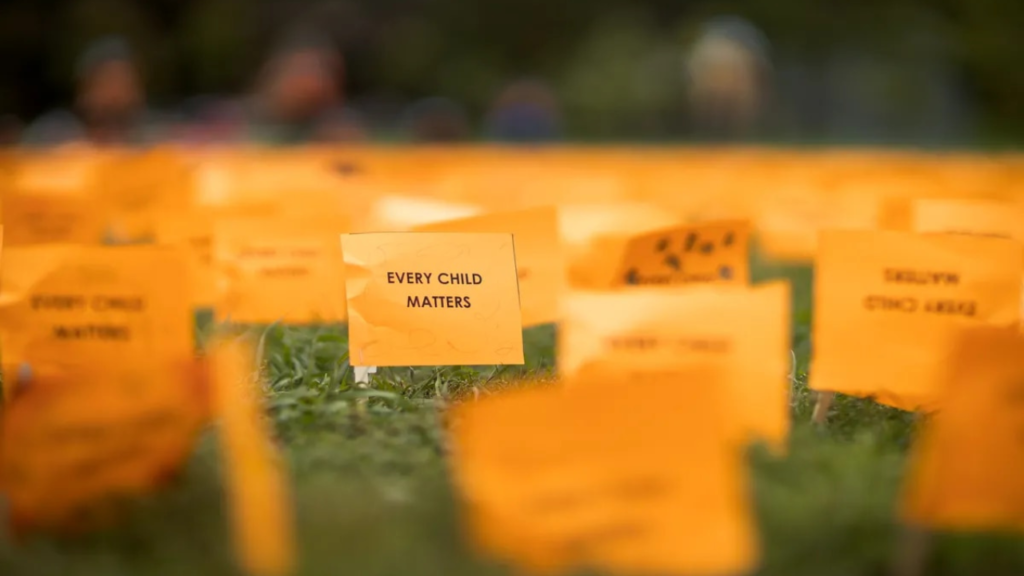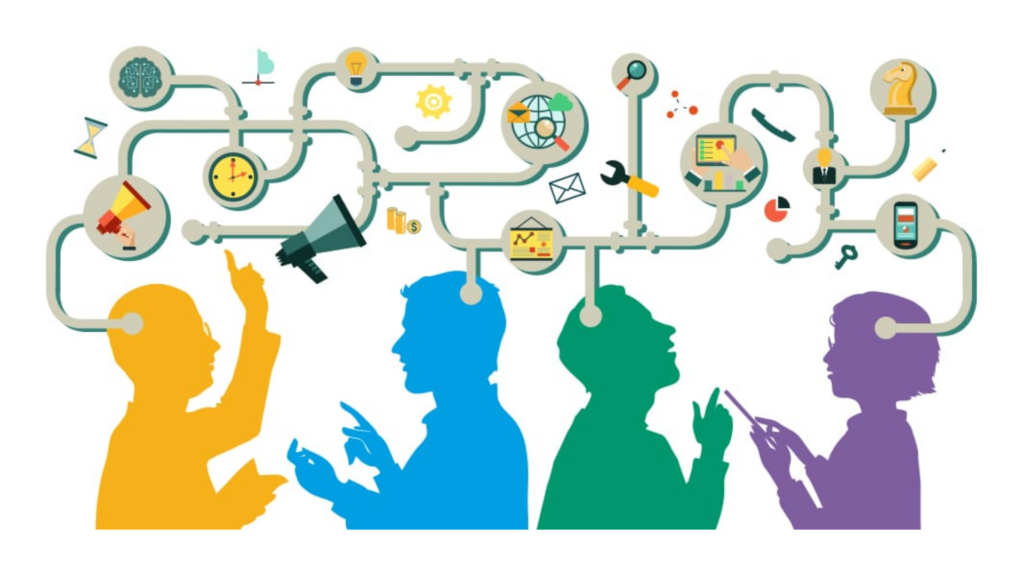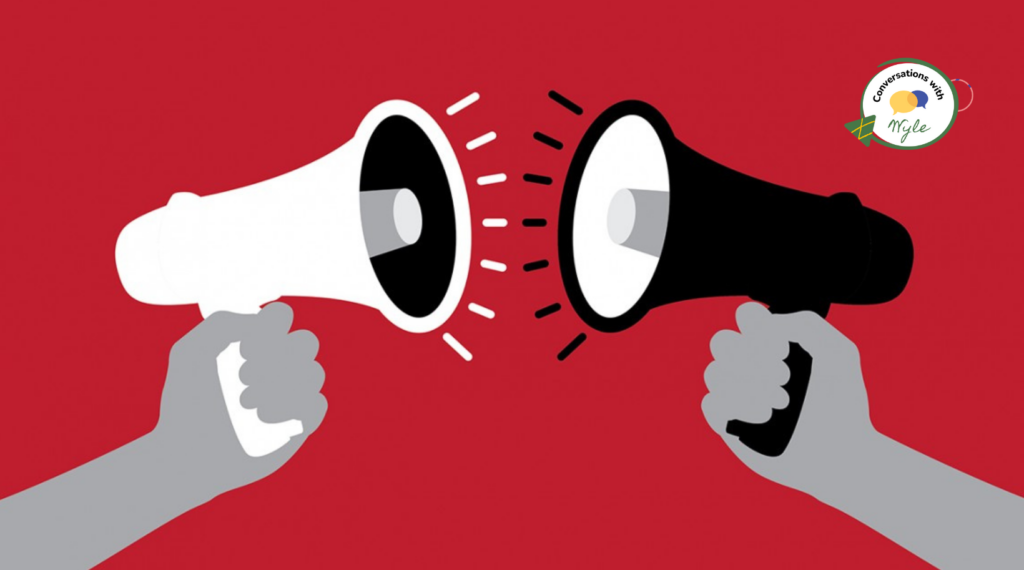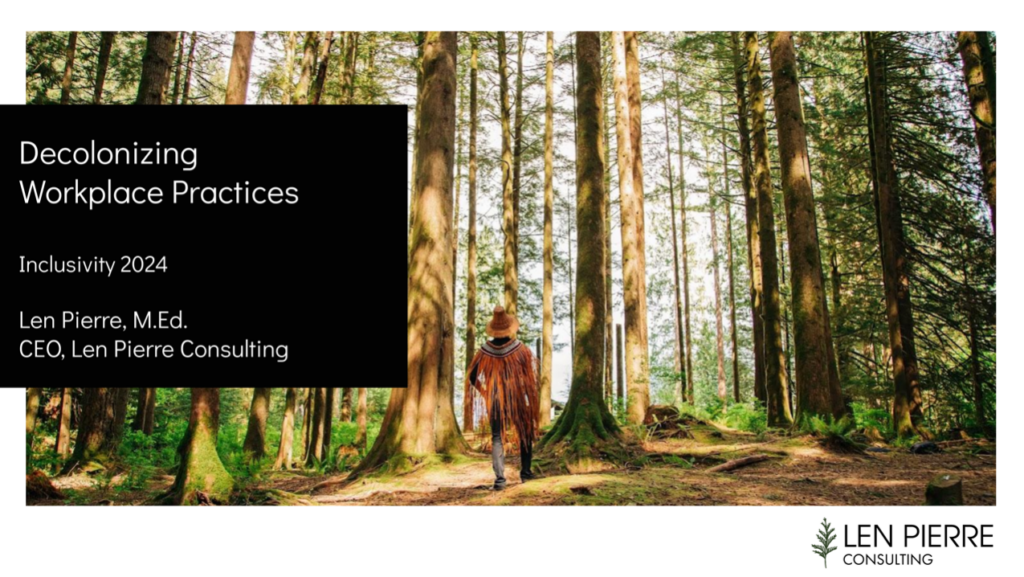National Day for Truth and Reconciliation
September 30 marks the National Day for Truth and Reconciliation, a federal statutory holiday enacted in 2021 in response to public pressure to honour call of action number 80 from the Truth and Reconciliation Commission of Canada’s landmark report.
This is a day to honour the Indigenous children who never returned home, residential school Survivors, and their families and communities. Canada’s residential schools, the last of which closed in 1997, are part of this country’s legacy of institutional oppression against Indigenous Peoples. Indigenous children were forcibly removed from their families and communities, isolated from their own culture, and through horrific abuse, “assimilated” into dominant Canadian culture.
September 30 also marks Orange Shirt Day: Every Child Matters, an Indigenous-led grassroots commemorative day intended to raise awareness of the individual, family, and community intergenerational impacts of residential schools. The orange shirt is a symbol of the stripping away of culture, freedom, and self-esteem experienced by Indigenous children over generations.
It is a day to recognize that Every Child Matters, even if they are an adult, from now on. The date was chosen because it is the time of year in which children were taken from their homes to residential schools, and because it is an opportunity to set the stage for anti-racism and anti-bullying policies for the coming school year. It is an opportunity for First Nations, local governments, schools and communities to come together in the spirit of reconciliation and hope for generations of children to come.
– From orangeshirtday.org
Truth is The Basis of Reconciliation
Thank you to Marissa M. (Kenaytco) and the team at Len Pierre Consulting for sharing your wisdom at this week’s webinar on “Embracing Truth for Meaningful Reconciliation”, hosted by Inclusivity. Over 500 people across Canada joined us and took action on the path to reconciliation. To host a webinar on this topic in your organization, or community, please contact [email protected]
1. Contact us to host this webinar.
2. Get notified about future learning opportunities.
3. Continue reading for a summary of the presentation.
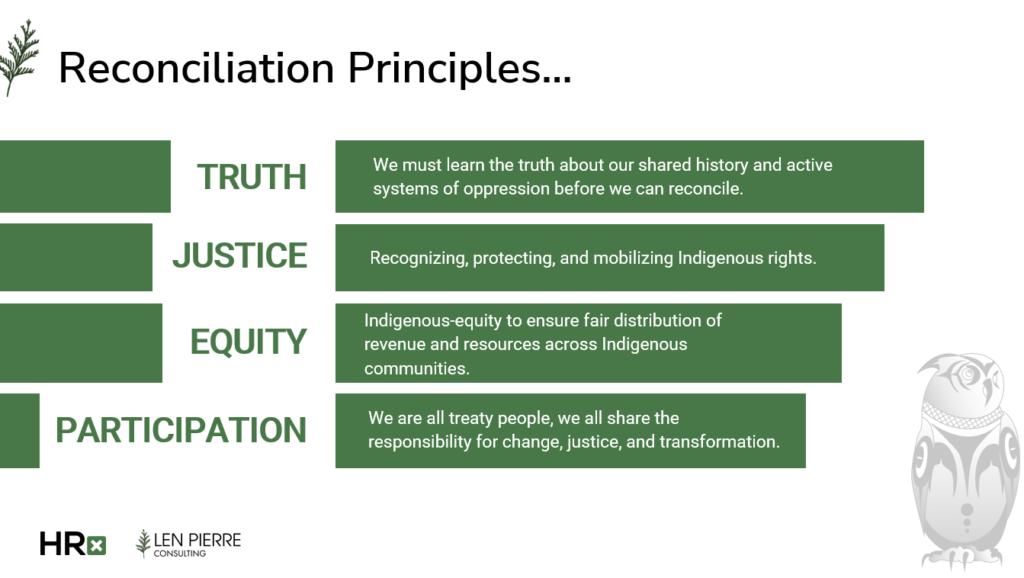
Reconciliation is an active, ongoing process that stems from truth. Truth comes from listening to Indigenous Peoples’ stories and personal testimonies about their experiences of systemic oppression, discrimination, and colonization.
Remember, truth and reconciliation go beyond a single day; they are lifelong processes based on self-reflection, continuous learning, and relationship building.
Reflecting on Canada’s colonial and oppressive history, repairing the causes of injustice, and acting to change harmful behaviours are important steps in establishing and maintaining respectful relationships with Indigenous Peoples.
Addressing Prejudice & Anti-Indigenous Racism
The false beliefs and misinformed institutional practices that enabled residential schools to operate for over a century remain intact today. It is critical to understand how non-Indigenous Peoples and the dominant society continue to engage in thinking and practices that perpetuate anti-Indigenous racism. The impact of colonization and racism is amplified for Indigenous women and 2SLGBTQIA+ Indigenous Peoples.
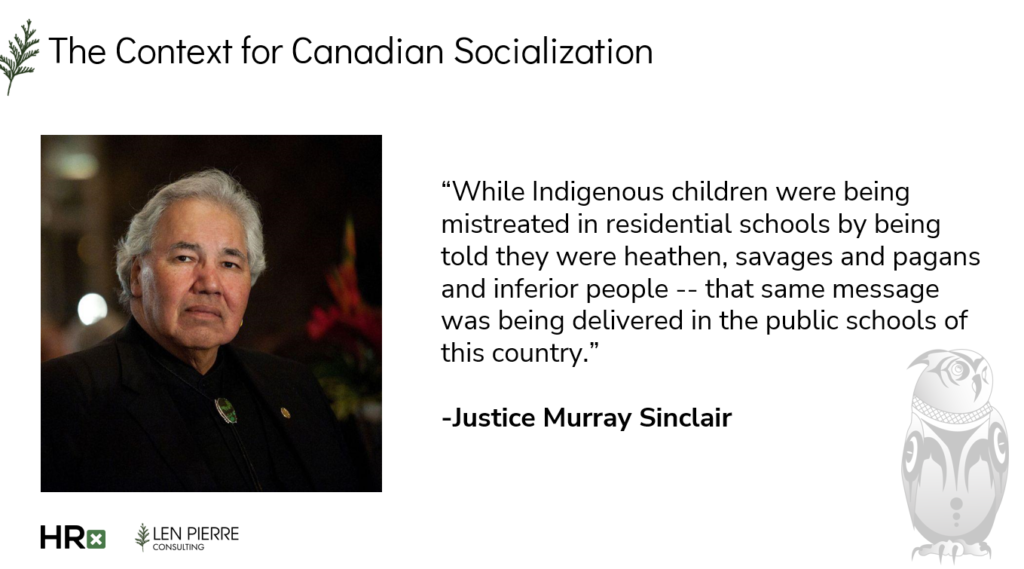
While prejudice is an internal judgement about other people’s cultures, discrimination is an external action. We are discriminating when we treat people differently because of our prejudiced beliefs.
Prejudices naturally form as we encounter people outside of our own cultural context, and are reinforced through media and socialization. The goal should not be to eliminate prejudiced thoughts completely (an impossible task) but to pause and honestly reflect on the source of these thoughts. Curiosity, humility, and a willingness to learn are opportunities to overcome prejudicial thinking.
A common misconception is that racism is solely experienced on an interpersonal level or between people; however, that belief does not account for the ways in which racism manifests on a grander scale. Institutional oppression occurs when collective prejudice, discrimination, and racism are backed by money and authority. It remains a problem in Canada.
Translating Awareness Into Action
Indigenous Cultural Safety as the outcome
Dr. Mary Ellen Turpel-Lafond says, “Cultural Safety is an outcome, to get there we will need anti-racism tools”. Many organizations value and commit to anti-racism work; however, they often lack the common language, skills, and strategies to mobilize it.
Education—on a personal and collective level—is foundational for dispelling prejudices and moving towards cultural safety for Indigenous Peoples in all settings.
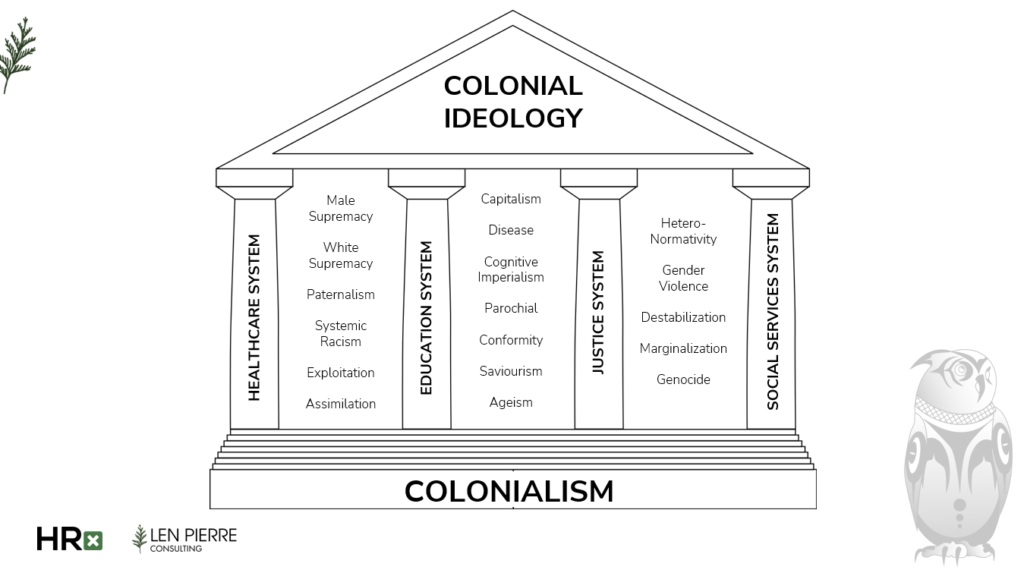
Indigenous cultural safety is commonly understood in reference to the healthcare system; however, it is relevant for decolonizing other pillars of society– the education, justice, and social services systems–that continue to be sources of harm.
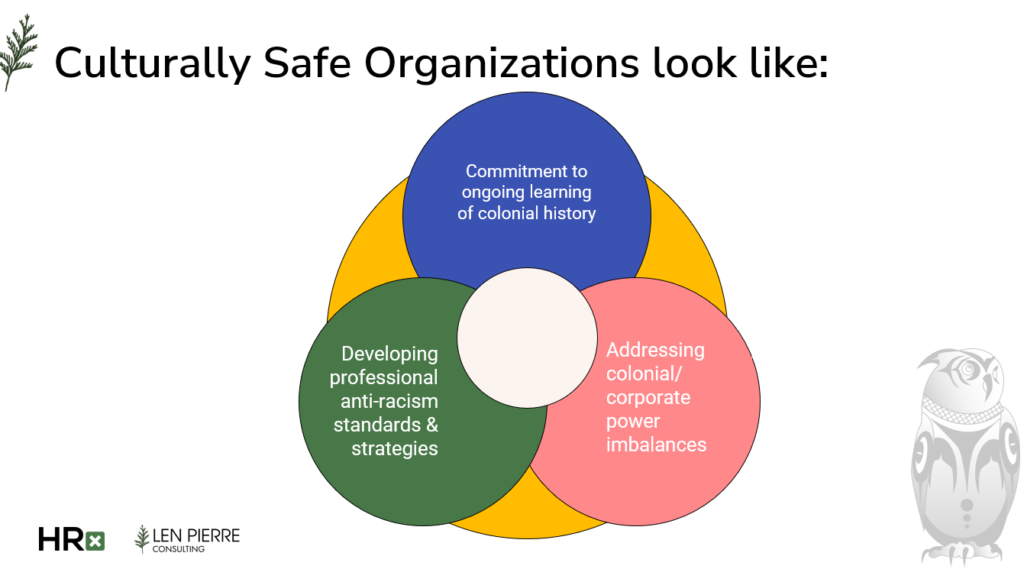
In workplaces and organizations, Indigenous cultural safety is based on respectful engagement; recognizing and addressing power imbalances; and fostering an environment free from racism and discrimination.
Reconciliation practices for organizations include:
- Education & Training: Workshops, experiential and cultural learning, and pre- and post-evaluation/assessments.
- Reporting & Accountability: Strategic planning, performance reviews, policy reviews, defining reconciliation, and onboarding practices.
- Communication Strategy: Fact sheets, town halls, team meetings, and annual reports.
- Indigenous-Equity: Job development, Indigenous protocols, decolonial methodology, and skills-based hiring.

For more information on understanding and implementing the principles of reconciliation in your organization, please contact Len Pierre Consulting and visit culturallycommitted.com.
A special thank you to Marissa and Len Pierre for providing important resources and training opportunities to our team and partners.





